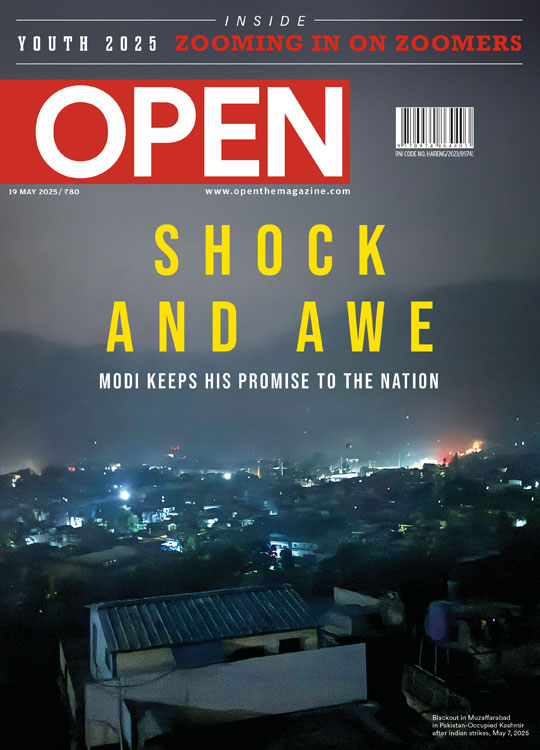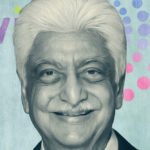Dattatreya Hosabale: ‘Secularism in India has been anti-Hindu’
Open Conversation with Dattatreya Hosabale, joint general secretary, RSS
 Advaita Kala
Advaita Kala
 Advaita Kala
|
31 May, 2017
Advaita Kala
|
31 May, 2017
/wp-content/uploads/2017/05/Hosabole.jpg)
ON THE SIXTH floor of the Deen Dayal Research Institute is a modest residential facility. It was once the home of Nanaji Deshmukh, the pracharak and Jan Sangh ideologue. In the simple living room that receives guests is a large portrait of Guru Gowalkar, in his trademark flowing white kurta and dhoti. Those who once knew Guruji say he maintained his youthful energy and sprightliness even through his painful battle with cancer. The man I am to meet today has that same energy and youthfulness, and at 61, Dattatreya Hosabale will tell you that he has no use for reading glasses. His last medical examination confirmed what most people detect almost instantly on meeting him, his joie de vivre. The younger Dattatreya, an English Literature graduate with a love for the written word, had wanted to make films. The scripting was underway when the Emergency intervened, and he was incarcerated, moved from one jail to another over a period of eighteen months. Becoming a pracharak or a full-timer with the Rashtriya Swayamsevak Sangh (RSS) was a future that he embraced as a matter of destiny. Immersed in everyday living and yet carrying the kernel of detachment is how he navigates through life, meeting a cross-section of people, travelling around the country and unspooling that ‘silken thread’ that binds us all together. And he admits, his work with his organisation gives him little time to write, he has to spend most of his day speaking. Only a writer would understand how difficult it is to live in the world of the spoken word and that of the written at the same time. But today we settle for a compromise, a long conversation presented in the written form. Excerpts:
Do you think in India of the moment there’s a dispute over the Idea of India?
After Independence, we have been told that the four pillars that hold up the Idea of India are socialism, secularism, parliamentary democracy and non-alignment. The intellectual class of this country which became part and parcel of the ruling class or the political class, so to say, has been patronised by the Nehruvian establishment to spread these ideas as the core ideas or the fundamental ideas of India. So in the field of academics, media and intellectual activities, even spreading to art, culture and other performing arts, etc, they have said that secularism and socialism are the only ideas that are to be propagated. That is why more than the British period, it was in the Nehruvian period that there was a deliberate attempt to cut away from our cultural roots.
Why do you think that was the case?
In order to establish ideas of secularism and socialism.
But what is wrong with secularism?
By themselves, these ideas are not wrong and flourish in a particular context. The Indian version of socialism and secularism has always existed. After all, what is secularism? Secularism evolved in the west, in European countries, because the church and state were at loggerheads. To free themselves from the shackles of the church, which at once had both religious and political hegemony, kings decided that they were separate from the church and emphasised that state craft was different from religion. In any country, a state can be secular but its people cannot be completely secular. Even in the USSR, the state was atheist, but people held onto their religious fervour, at the first opportunity they returned to the church. Religiosity is not something that the state can completely control. As far as state craft is concerned in Europe, it is necessary; they need it. But in the Indian context, this secularism will not work. Hence here it was referred to as dharma nirpeksh and then panth nirpeksh; the state has to be panth nirpeksh, it is free from any particular religious influence and the state should not patronise any particular religion. Our founding fathers, our Constitution makers said the state is equidistant, equal respect to all.
People, because of their cultural heritage, want to protect the cow. Gandhiji had arranged exhibitions in the AICC conferences on the cow and he had on repeated occasions emphasised on the need for cow protection. It wasn’t interpreted as parochialism and narrow-mindedness
What you are saying reminds me of the French lacite, the personal vis a vis the state. So in India is the state then ‘religion neutral’?
If it is neutral then the state cannot fund so-called religious activities. Why do you form Hindu Religious Endowment Boards or Trusts? If the state is irreligious. Or if the state is neutral to religion, then you leave it to that religion. But [if] you appoint an IAS officer to a temple board; it shows that the state is not neutral or indifferent to religion. Where it is useful, it is used or rather dispensed with.
This doesn’t happen with other religious trusts.
Yes, that is one reason, among many, why this is called pseudo secularism. In India secularism has been about minority appeasement and it has been anti-Hindu.
Why do you believe Nehru’s ‘Idea of India’ took such a grip on national life?
Nehru was all-powerful for eighteen years. Secondly, the Congress had the advantage of taking full credit for the freedom movement. Although that was not the case. Another thing is soon after Independence, the government machinery, which in a way ruled minds in both the intellectual and cultural spheres, was controlled by the Congress. Then the Communists by infiltrating into all institutions— academic, media, policy-making, autonomous bodies, foreign policy framing, education policy— exerted their influence.
Engagement will lead to a clearing of misapprehensions but Nehruvians are never ready to engage in a debate. It is a kind of untouchability that they practise. People despise social untouchability but what about political and intellectual untouchability?
When it comes to the Idea of India, there is no dispute as such; the point is that there can be a variety of ideas and each must be permitted its space. India being a country of so many diversities can have a number of ideas. And it’s not necessary that they should be at loggerheads or contradictory to each other. But the problem was the approach that one idea should rule, this was enforced, and it influenced the thinking of this country through formal and informal methods and government and non-government channels.
Is there a conflict then between secularism and Hindu nationalism?
When we look at the foundations of our country, among the renaissance masters of this country, no one has ever said that it is secularism that is the foundation of India. It is, in fact, India’s cultural unity and spiritual oneness that is its foundation. If you read Dr S Radhakrishnan for example, who edited the volumes of the Cultural Heritage of India or Gandhiji, they have laid an emphasis on our cultural ties that bind. The Congress said there was no historicity to Rama, but soon they had to withdraw that statement.
Do you believe in the Left and Right wing division? It has been brought to the forefront ever since the alternative narrative emerged and found a voice. Do you think this division is real?
Whether I believe it or not, society will always have people with different mental and intellectual positions. That is why there will be groups and subgroups based on opinions. Now coming to the question: Right or Left? It is all temporary. According to me, there cannot be total Left thinking or Right thinking. I, myself, if people call me a Right wing man, I will not accept that.
You do realise that is how they will define you…
I am not a Right wing man, . See there are certain things— this so-called Left may be perceived as necessary for society, for a nation and human life. The Right has its own stances which are also relevant. Why should you divide a society into Right and Left? This is how the European mind thinks, you should put things in black or white, but there is always a grey area. Life is not totally black or white. A state, society or people cannot be Right or Left.
So in a sense, it further divides society?
This division itself is artificial, unscientific and inhuman. It should not happen, that is why I, as a Hindu nationalist, as a votary of Hindu nationalism, myself, if I were to define myself, I would say that this Left and Right, this division is very superficial. I am neither Left nor Right.
So you would be a Hindu nationalist?
A Hindu nationalist, because the good of the Left and the good of the Right are both welcome and Hindu nationalism wants to include good from both.
When it comes to the Idea of India, there is no dispute as such; the point is that there can be a variety of ideas and each must be permitted its space. It’s not necessary that they should be at loggerheads or contradictory to each other
When you say Hindu, do you use it in the cultural context or the religious context?
In the cultural context.
But a lot of people will perceive it in the religious context.
That is because Hinduness has not been understood in the way it should be. It is the trouble that has travelled from the freedom struggle and subsequent partition. The History of Hindu Chemistry was published by Prafulla Chandra Ray in 1902, the Hindu paper was published, Vande Mataram was sung in the Congress. In the AICC sessions, on Gandhiji’s urging there were exhibitions on cow protection and service. In fact, he even introduced bhajans in the ashram but not namaz. So was Gandhiji a Hindu fundamentalist?
Now take vegetarianism. Savarkar said we should eat meat, and Gandhiji propagated vegetarianism. And today you say that Hindutva is for vegetarianism, and Savarkar was a Hindutvavadi . Swami Vivekananda spoke for Hindu nationalism, for the Hindu nation but Vivekananda was not against meat eating. As a sanyasi, he never opposed these things. Vegetarianism has not been propagated by the RSS.
And there is the understanding of nationalism in the West because of Hitler; it raises concerns. Hence, I qualify my nationalism by prefixing Hindu to it. Hindu nationalism has a cultural component and we are expressing it in the cultural context.
There are many aspects. Engagement will lead to a clearing of misapprehensions but Nehruvians are never ready to engage in a debate. It is a kind of untouchability that they practise. People despise social untouchability but what about political and intellectual untouchability? I have seen people say that if the RSS people are coming here, then I am not going to share the dais with him.
Coming back to cultural nationalism, why do you believe this revivalism is important?
That is because a nation’s soul must get expressed. It is necessary for building and achieving development of the nation. A nation without understanding its own soul, its cultural moorings, cannot express itself. A nation should get expressed in every aspect of life.
But it may be said that this expression is finding its way in things like beef ban and cow vigilantism.
There are three aspects to this. The first is cow vigilantism, the second is the beef ban and third is gauseva. Cow protection is a directive principle of the Constitution. It is the law of the land. As long as it is there, is it not the state’s responsibility to protect cow progeny? If you are not doing so, society because of its feeling and aspirations, may act. More volatile fringe elements could get violent. Now the question is whether someone should take the law into their own hands. No, they should not. You must take action against anybody who is taking the law into their own hands because the enforcement of the law is not the job of civilians, it is the job of the state. But when the state is failing in its duty, public agitations take place in different manifestations. RSS Chief Mohan Bhagwatji has repeatedly said that in the name of protecting cows, it is unacceptable if anybody takes the law into their own hands. And we don’t accept it.
In your idea of modern life, the western world, this may be hard to fit into context but that is immaterial. People, because of their cultural heritage, they want to protect the cow. Because for one the cow is sacred, it is also a useful animal. As I said Gandhiji had arranged exhibitions in the AICC conferences on the cow and he had on repeated occasions emphasised on the need for cow protection. It wasn’t interpreted as parochialism and narrow-mindedness.
Let us get to the root of the question. If abandoned, the state should make arrangements, build cow shelters. Now if I say all people should get their livelihood, then you will say there are so many beggars and what are you doing? Yes, society and the state should do something to uplift them. We are trying our best, people like us who speak about cow protection are running 1,000 gaushalas across the country. It is not just talk. People who are speaking of cow protection are also taking care of cows.
But then there is the question of personal freedoms.
Gandhi Jayanti is a dry day out of respect for a great man’s message, so why can’t you respect a community’s sentiments towards cows? The former [dry day] is not questioned but is it not an incursion on personal freedoms by that definition? One’s freedom has to have some restrictions because you are living in a society. No freedom is absolute in our Constitution. Reasonable restrictions are imposed as in every society. For example, my freedom, so I will go for a ‘Slut Walk’, so people will go semi-naked. Then it will be my freedom, my body, nobody should question.
I suppose the point is context.
It is a question of context. In a particular context, everything is freedom, and that is fine. When it comes to the question of public decency and morality, those things have to be restricted. In a club somebody goes and wears the bare minimum dress, in that environment and context, people may enjoy it, may like it. Same thing cannot happen on the road.
But that is a problem with society, if you have a degrading view of women.
Correct, it is not the woman’s fault but society is not of people of the same mind. You cannot have people with the same outlook or mentality. Then there would not have been one Mahatma Gandhi or one Vivekananda. All would have been the same.
A quick political question for the last one—there were some objections to Yogi Adityanath being the leader of a sect and the Chief Minister. Can the two go together?
He is an Indian citizen, he has been an MP. Then there were no questions on his presence in political life. So if he can be a legislator why can’t he be a chief minister? He has been a five-term member of parliament. Our Constitution does not restrict this if he can be an MLA or MP why can’t he be a minister or CM. And people have welcomed his appointment. They have welcomed a spiritual head because they feel there is no personal aggrandisement. Nothing wrong. And there have been cases, for example, Dalai Lama was a temporal and spiritual head. Shiromani Gurdwara Parbandhak Committee (SGPC) persons, the Akali Dal ministers—it has happened before.

/wp-content/uploads/2025/05/Cover-War-Shock-1.jpg)













More Columns
A Trump Shock To The Pharma World Open
Social Media As an Echo Chamber Nandini Nair
Seventy-two Hours That Changed South Asia VK Shashikumar